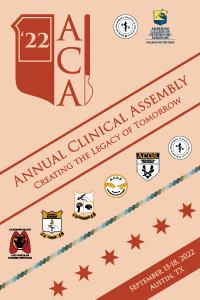Back
General Surgery
GS06 - Brugada Syndrome Induced Syncope Causing Trauma: A Rare Case and A Literature Review

Joseph S. Lim, D.O.
General Surgery
Medical City Arlington
Grapevine, Texas, United States- DP
Danielle Pigneri, MD
Medical City Arlington
Arlington, Texas, United States
Primary Presenter(s)
Author(s)
Introduction/Purpose:
Brugada Syndrome is a rare cardiac genetic disorder that can causes syncope, arrhythmias, and even sudden cardiac rest. Often seen in individuals from Asian descent, this rare disorder is thought to have been caused secondary to genetic mutations, most commonly SCN5A, which encodes the cardiac sodium channels. This subsequently leads to abnormalities in the electrical conductions of the heart leading to EKG findings with ST elevations in leads V1-V3 in a right bundle branch block pattern. The link to Brugada Syndrome with trauma has only been reported once in medical literature.
Methods or Case Description:
A 77-year-old Vietnamese female with past medical history of hypertension, dyslipidemia, type 2 diabetes mellitus presented to our trauma center following a motor vehicle crash. Patient was driving and became dizzy and lost consciousness that prompted the accident. Patient was diagnosed with C7 and L2 vertebral body fractures, T5 burst fracture, sternal fracture, bilateral rib fractures, and pulmonary contusion. She underwent rib and sternal plating without complications. Additionally, syncope workup was initiated, and EKG showed findings concerning for Brugada Syndrome. Patient underwent implanted cardiac defibrillator placement without any complications. She was eventually discharged to an inpatient rehab facility for further care.
Outcomes:
To our knowledge, there are only 2 reported causes of trauma secondary to Brugada Syndrome. While Brugada Syndrome is not commonly on the differential diagnoses during syncope work up, rare cases such as this one stresses the importance of a well-coordinated care between the different specialties.
Conclusion:
Brugada Syndrome is a rare genetic disease that can cause syncopal events leading to trauma.
Brugada Syndrome is a rare cardiac genetic disorder that can causes syncope, arrhythmias, and even sudden cardiac rest. Often seen in individuals from Asian descent, this rare disorder is thought to have been caused secondary to genetic mutations, most commonly SCN5A, which encodes the cardiac sodium channels. This subsequently leads to abnormalities in the electrical conductions of the heart leading to EKG findings with ST elevations in leads V1-V3 in a right bundle branch block pattern. The link to Brugada Syndrome with trauma has only been reported once in medical literature.
Methods or Case Description:
A 77-year-old Vietnamese female with past medical history of hypertension, dyslipidemia, type 2 diabetes mellitus presented to our trauma center following a motor vehicle crash. Patient was driving and became dizzy and lost consciousness that prompted the accident. Patient was diagnosed with C7 and L2 vertebral body fractures, T5 burst fracture, sternal fracture, bilateral rib fractures, and pulmonary contusion. She underwent rib and sternal plating without complications. Additionally, syncope workup was initiated, and EKG showed findings concerning for Brugada Syndrome. Patient underwent implanted cardiac defibrillator placement without any complications. She was eventually discharged to an inpatient rehab facility for further care.
Outcomes:
To our knowledge, there are only 2 reported causes of trauma secondary to Brugada Syndrome. While Brugada Syndrome is not commonly on the differential diagnoses during syncope work up, rare cases such as this one stresses the importance of a well-coordinated care between the different specialties.
Conclusion:
Brugada Syndrome is a rare genetic disease that can cause syncopal events leading to trauma.

